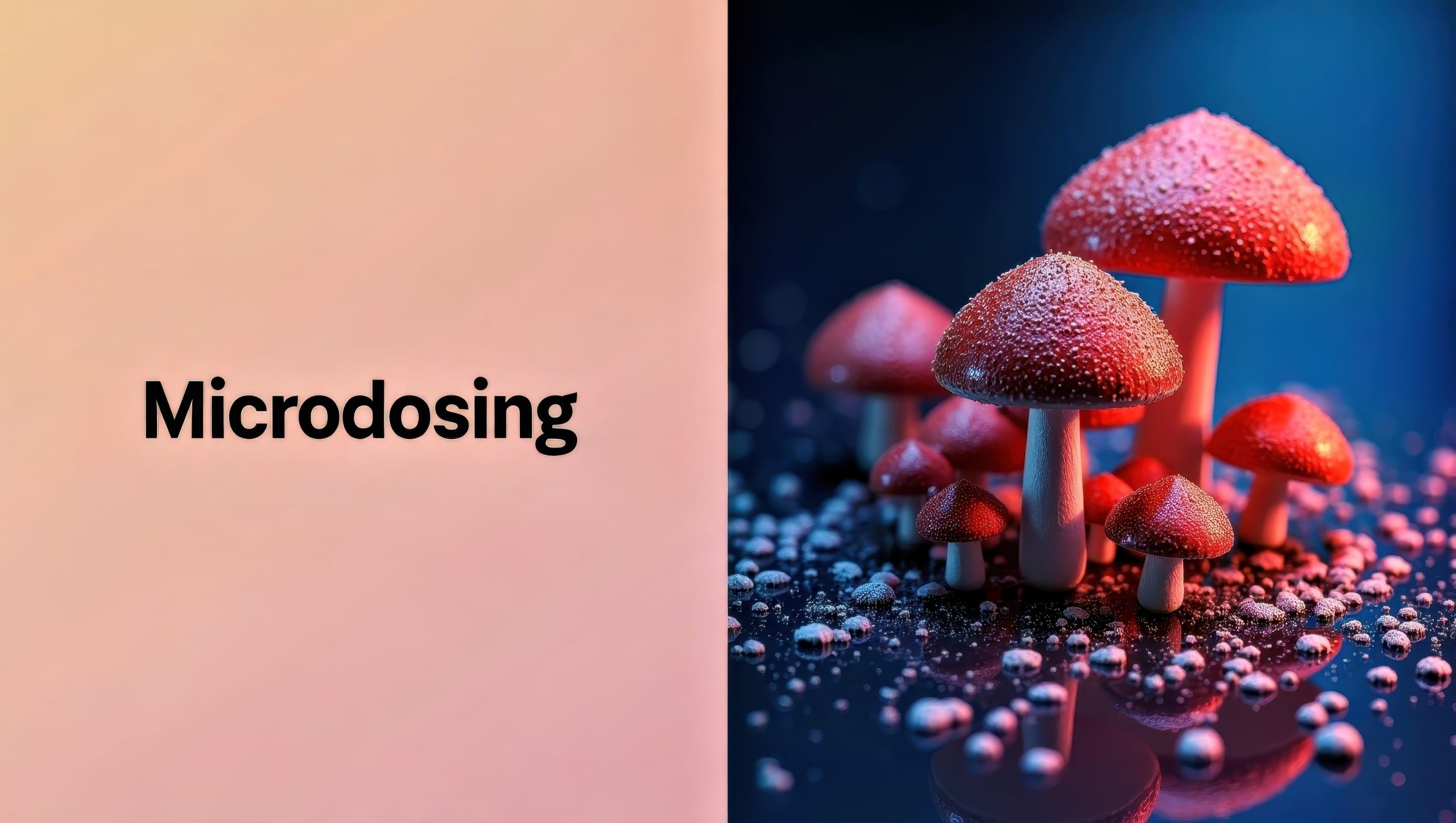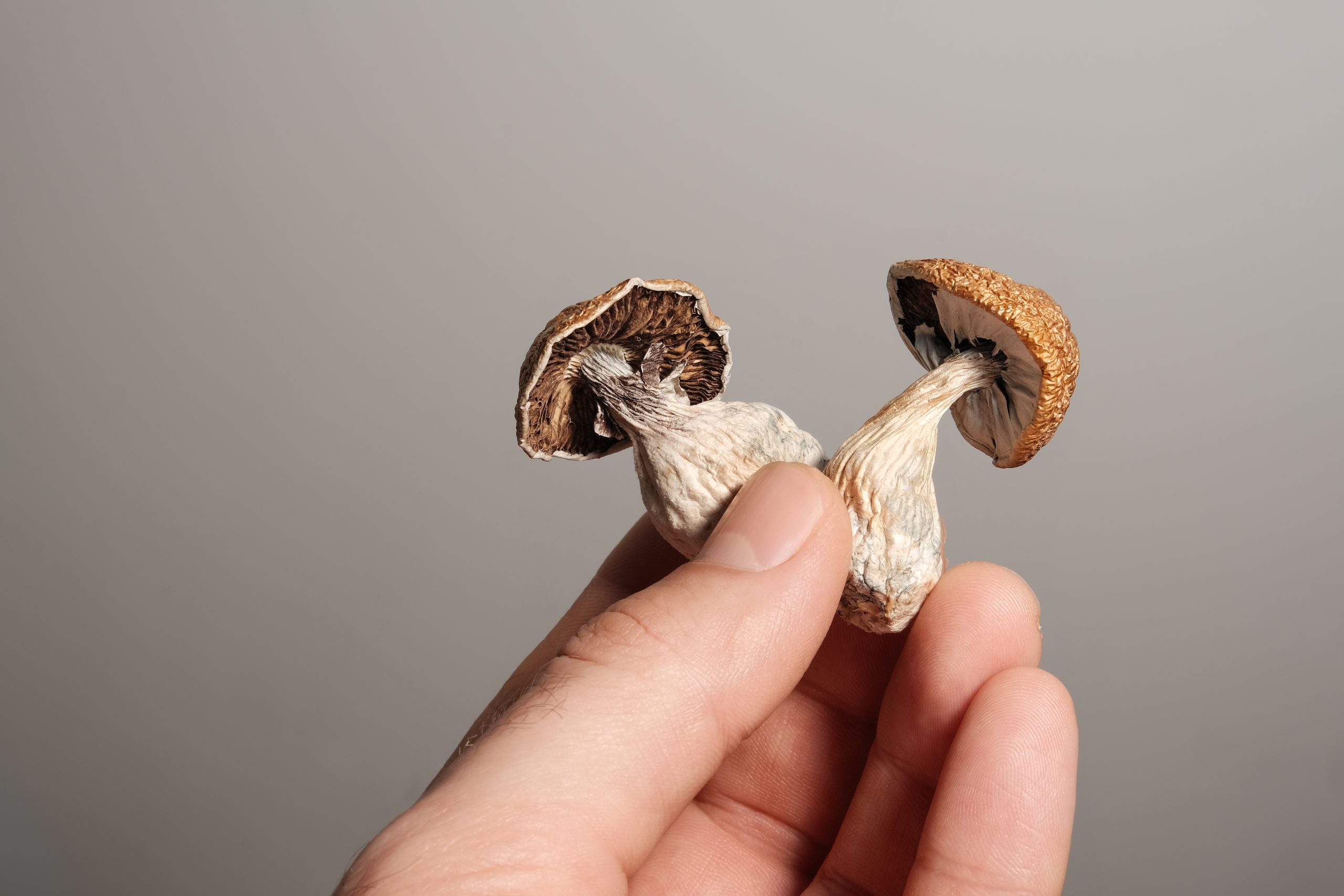Many individuals seek natural and sustainable methods to enhance their mental health. While traditional pharmaceuticals and therapy have helped countless individuals who suffer from depression or anxiety, there’s growing interest in a more unconventional and holistic solution: microdosing psilocybin.
People who have consumed small amounts of psilocybin (the active compound in psychedelic mushrooms) have reported improvements in mood, focus, and overall mental well-being.
Explore the science behind microdosing for mental health.
What Is Microdosing?
Microdosing involves consuming a very small, non-hallucinogenic dose of psilocybin, often about one-tenth of a typical recreational amount. The goal isn’t to trip or have a psychedelic experience. Instead, it is to subtly boost your brain’s chemistry in a way that may ease depression, reduce anxiety, and even possibly increase creativity or emotional balance.
Consider it a gentle nudge toward clarity and balance, rather than a full-blown psychedelic journey.
Why Magic Mushrooms for Mental Health?
Psilocybin is a compound found naturally in magic mushrooms and has been used for centuries in spiritual and healing traditions. Modern science is now uncovering how it interacts with the brain. Psilocybin binds to serotonin receptors, particularly the 5-HT2A receptor, which is concentrated in key areas of the brain. This binding helps reset patterns in the brain that are often disrupted or clouded by conditions such as depression and anxiety.
Research from UCSF suggests that psilocybin may help rewire the brain. It can strengthen communication between different regions, ultimately breaking cycles of rigid, negative thought processes.
This may explain why people often feel lighter, more connected, and more open after a microdose of psilocybin.
What the Science Says
While large clinical trials are still ongoing, the early research on how a microdose impacts depression and anxiety is incredibly promising:
- A Nature Scientific Reports (2021) study found that psilocybin was linked to improved mood for those who consumed a microdosed amount. These consumers also experienced reduced symptoms of anxiety and depression, and reported better emotional regulation and overall mental health.
- A report from Medical News Today stated that those who participated in microdosing mushrooms often report feeling calmer, more motivated, and less reactive to stress, even after only a few weeks of consistent practice.
- UCSF executed a series of brain image studies that have shown psilocybin helps areas of the brain that normally shut down in depression. Consumers who tried microdosing reported enhanced cognitive functioning and feeling uplifted. Research shows it also creates new neuropathways and stronger neural connections.
These clinical studies around psilocybin point toward microdosing mushrooms as a potentially powerful tool for people navigating depression and anxiety. In contrast, microdosing psilocybin tends to produce less overwhelming and burdensome effects than most pharmaceutical treatments for depression or anxiety.
Tips for Microdosing Mushrooms with Intention
If you’re curious about exploring how to microdose, here are a few best practices to keep in mind:
- Start low and go slow. A common dose is around 0.1-0.3 grams of psilocybin, no matter the form you consume it in. Start with 0.05-0.1g in the morning.
- Consider microdosing daily when starting. Contrary to popular ideas, the body does not develop a tolerance to psilocybin when microdosing. Consider microdosing every day when you start. This will allow you to quickly find the dose that is most helpful to you. Increase by 0.05g each day until you are noticing benefits. Reflect at the end of the day. What was different that day? Look for benefits including creativity, focus, quieter mind, reduced anxiety or depressive symptoms, general sense of well-being, a more relaxed physical state, or other benefits.
- Track your progress. Journaling your mood, focus, and sleep can help you notice subtle shifts over time. It also allows you to track the precise dosing and results that work best for you. Consider a guidebook such as Grow Your Own Thoughts: Microdosing With Purpose to help with getting started.
- Stay mindful. Microdosing mushrooms is about gentle enhancement, not immediate fixes. Good things take time. Be patient with the process. Remember, microdosing is not about how you feel; it is about what you notice.
Research and lived experiences suggest microdosing psilocybin could be a meaningful ally for mental health, even if it isn’t a magic cure-all. Combining microdosing with a therapeutic component contributes to more meaningful long-term outcomes. Options such as the Therapeutic Microdosing Subscription offered by CTS and Grow Your Own Thoughts are a great way to get started.
By working in harmony with your brain’s natural chemistry, psilocybin opens the door to resilience and connection.
Grow Your Own Path to Healing
Aside from the potentially therapeutic effects, one of the most empowering aspects of microdosing is the ability to connect directly with nature by cultivating your own medicine. With Grow Your Own Thoughts at-home mushroom grow kits, you don’t need to be an expert mycologist to start.
Our mushroom grow kits, called Thought Boxes, are beginner-friendly, sustainable, and designed to help you grow your own magic mushrooms with intention and care. Our mushroom kits give you the tools to explore microdosing safely and mindfully, right from home.
Shop our full collection of at-home psilocybin grow kits, and read our blog for growing tips and more!
The contents of this blog are intended for informational purposes only. Always seek the advice of a physician or other qualified healthcare provider with any questions you may have regarding a medical condition.

